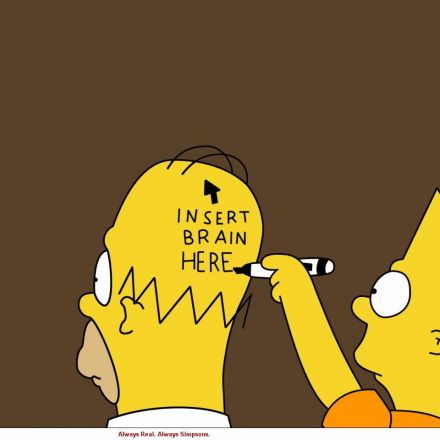

10 years ago
10
Three stupid questions
A pastor tells his flock three things to ask an atheist. You don’t even have to read it to know that a lot of stupidity will follow. But I’m game, give it a shot, believers, and ask me those three things — I’ll try to answer through the incredulity and laughter.
Continue Reading






















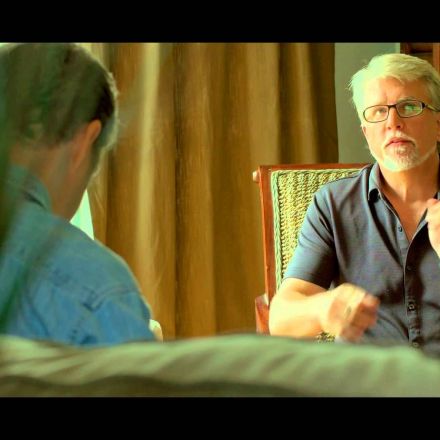
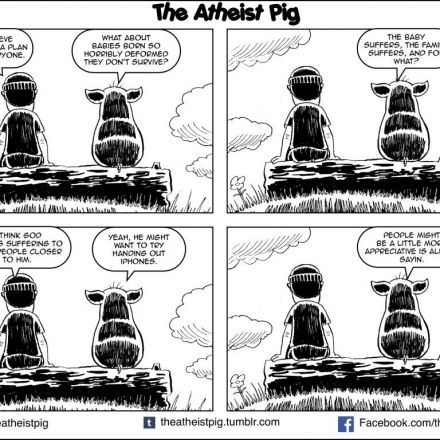
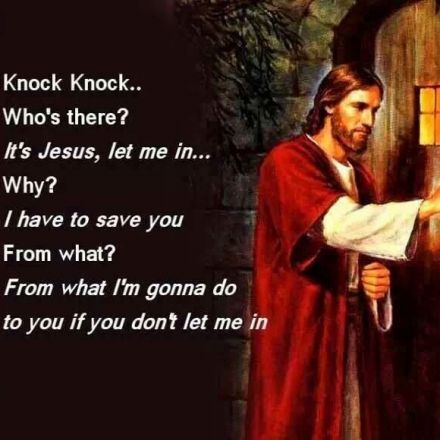
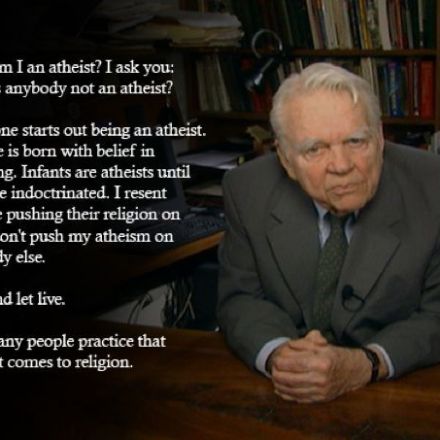
Join the Discussion
I put a stop to theist questions by explaining the argument-from-ignorance fallacy. It is perfectly acceptable to not have an answer for everything. There is virtually an infinity of things I am unaware of from before my birth, there is an infinity of things I will be unaware of after I am gone. I'm ok with that.
To be honest, the second question is what keeps me up at night, and why I identify far more as an agnostic than an atheist.
I just can't explain away the problems of a first cause, or of an infinite regression if there is none. There are so many questions that current scientific thought can't answer right now.
So that's why I see faith, religion, and the question of existence as a search, not as a certainty on one side or the other. As far as I can tell, I'll probably be searching for the rest of my life.
What part of "I don't know" justifies "therefore God?"
Nowhere did I say that I believe in God. In fact, the definition of agnosticism is that you are not certain about the existence of god, and I identify as a neutral agnostic, not leaning one way or the other. And while we can scientifically disprove the existence of unicorns or leprechauns, scientifically disproving the possibility of the existence of a god is much harder, which is why there is so much discussion about it vs whether or not unicorns are real.
All I'm saying is trying to keep an open mind on this stuff can be helpful. I thought the post to some extent belittled people who do believe or at least people who ask questions about possibly whether or not a god exists. It is much more productive to have rational conversations about this stuff rather than simply insulting the intelligence of the other side in my opinion.
Are you equaly unsure about the Christian God and Flying Spaghetti Monster (pesto be upon him)? What makes one or the other seem silly to you?
If there's a creator god, does it need to be all-knowing, all-mightly, all-benevolent? Does it need to be to be capable of decisions? Does it need to be aware? Does it need to exist past the Big Bang?
The more no you put, the closer you are to just slapping the label "God" on "I don't know".
I didn't say you did. I asked a simple question: what about "I don't know" justifies belief?
I don't claim to be certain about the existence of any gods, and I'm an atheist. I simply don't accept that "I don't know" means I should treat the possibility with equal respect as the evidence for a universe that is purely natural and shows no evidence of divine intervention. I have an open mind in so far as I'm willing to be wrong, but in order to convince me of that I will need evidence that doesn't require a desire to believe in the first place. It's easier to describe the gods I don't believe in than to try to refute each and every possible permutation of godhood that humans can imagine.
I'm an open-minded Christian, and not ashamed of it. I won't pose those questions, because they aren't the best.
Let's keep it simple, and I won't bash your views, but may comment on them, as long as you do the same for me.
The reasons I believe are varied and many, but the top ones:
1: Faith that our lives aren't pointless. If there's nothing after death, then we are little more than bipedal invasive creatures that destroy everything we touch.
2: Moral compass. If there's no point to life other than random spontaneous creation of life due to hydrocarbon stacking in an unique fashion, followed by eons of evolution, than why punish murders/rapists/thieves? They are following their genetic predisposition, after all, and in the end (the "big picture"), there's no repercussions if we live only to cease living.
3: Enlightenment. I know. many people feel that this is counter-intuitive, but look at it from my point of view. As a believer in one true God, the only way I can really expect to fully understand Him more is to explore what I believe He has created.
I don't have questions for you. I just have questions that I ask myself:
1: What was before the beginning of the universe? If there was something, how did it begin? If there was nothing, where did everything come from?
2: I believe in evolution. Evolution set in motion (and most likely guided) by God. There's nothing regarding evolution that disproves God's existence. On the contrary, I can't see how life would randomly begin without something interceding. My question is this: why is it assumed that Christians only believe in pure creationism? There's zero cause for this, yet the myth persists.
3: The bible states that to God created the earth in 6 days, but if you take a more accurate translation, it would be more accurate to state "dawning of an age" in place of "day". This means that there were 5 ages before man according to the Hebrew translation of Genesis. As the ages aren't a precise measurement of time, why does everybody assume that we think the world is only ~6000 years old? Furthermore, how does the more accurate interpretation of the age of the earth clash with what science estimates?
Thanks for your time.
I think it's akin than choosing to be drunk because it makes you happier. Bringing comfort does not make something true.
I see it the opposite way. Our lives matters more because there is nothing else. It makes them special. Otherwise, you're just doing time until you reach the afterlife.
Because many do. I'm not very interested by evolution and would in fact almost never talk about it if creationists didn't bring it back so often.
Again, many do.
A better question is "Why is there zero knowledge in the BIble that wasn't available to tent dwellers of the time?" Being an all-knowing God that cares about my creature, at the very least, I'd teach them the importance of hygiene.
I really don't understand that line of thinking. Why does something have to be eternal for it to have meaning? Meaning exists in the moments, in the experiences of everyday life. We create our own purposes, and personally I find that pretty awesome!
Morality is a result of our socialization and evolution! Even robots develop altruism!
Do you eschew a good meal just because it ends? Do you fail to relish it because it won't last forever?
Because murderers, rapists and thieves create problems in the world we live in. Morality is negotiated behavior, and when people choose to defy the behavioral standards of the community they live in consequences are imposed. People who sufficiently disrupt the interaction of society must be removed from it for the benefit of the whole. There's no way to make a better world to live in for ourselves and our children if we don't take action ourselves rather than relying on someone or something else.
The more preconceptions you bring to your search, the more likely you are to fail to achieve enlightenment and instead get sidetracked by your own confirmation bias.